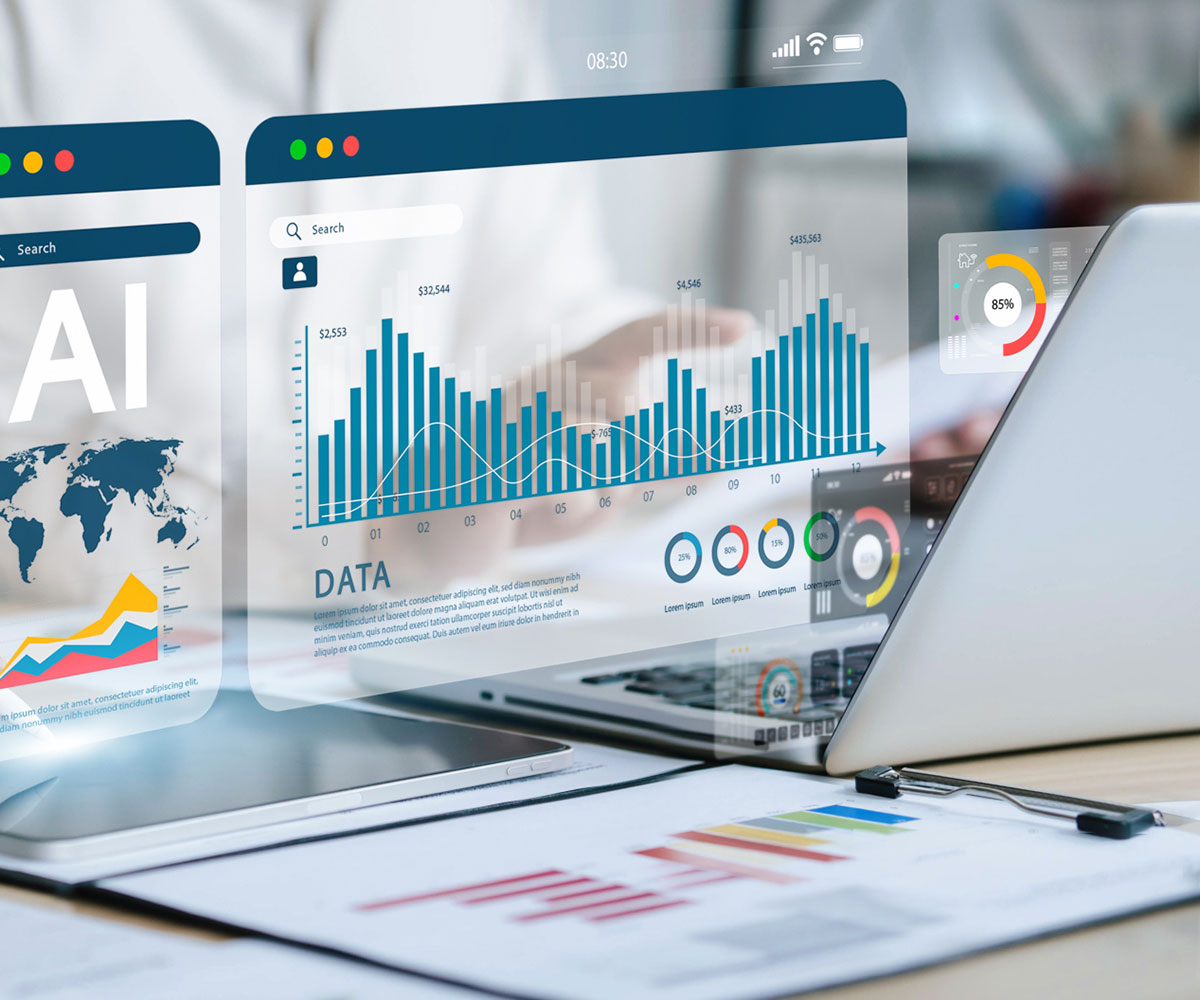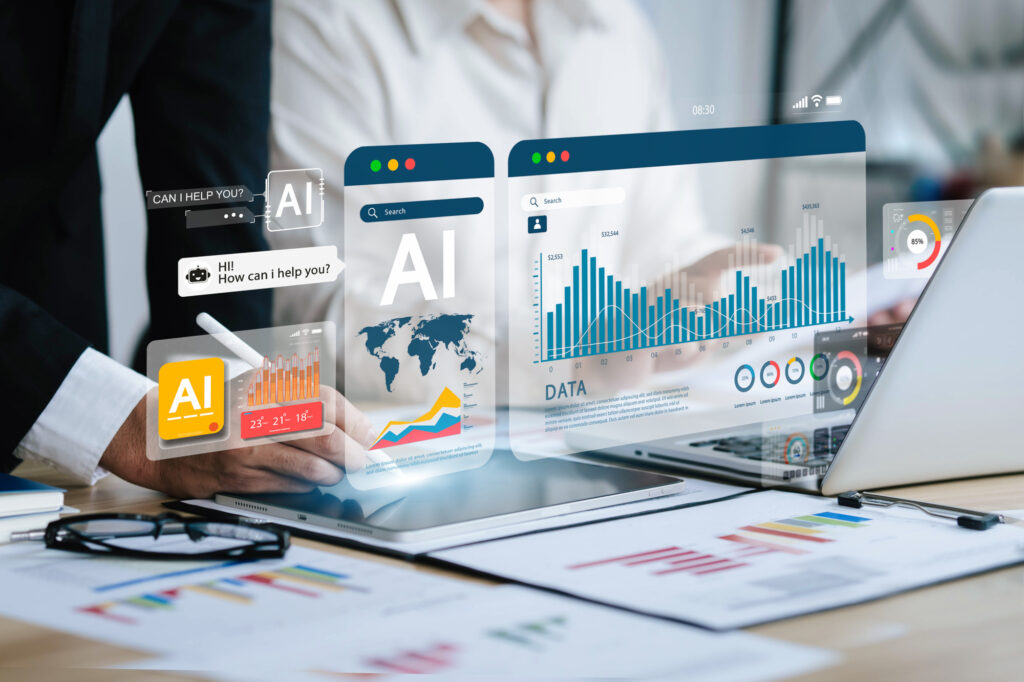Artificial intelligence (AI) is transforming the way businesses operate, and accounting firms are no exception. From improving efficiency to enhancing accuracy, artificial intelligence in accounting is helping firms streamline their processes and provide better service to clients. This article explores how various firms are incorporating AI into their daily operations.

What is AI in Accounting?
AI in accounting uses advanced technology to perform accounting tasks more efficiently and accurately. It involves machine learning, data analysis, and automation to assist accountants in managing financial data. Processing large amounts of information quickly helps firms make informed decisions, reduce human error, and improve overall productivity. The integration of AI in accounting allows professionals to concentrate on strategic tasks while leaving repetitive work to machines.
Accounting Firms that Use AI
Approximately 73% of top-performing accounting firms are now incorporating artificial intelligence into their operations. For instance, Ernst & Young uses AI to streamline payroll processes, which enhances both accuracy and efficiency. KPMG reduces loan processing times with AI, making the lending process simpler and faster. Another prominent firm, Deloitte, employs AI for audit projects, data analysis, and intelligent automation. These firms demonstrate how AI can optimize workflows and improve client services in the accounting industry.
How do Smaller Accounting Firms Use AI?
Many smaller accounting firms utilize AI-driven software for expense tracking and automating invoicing. AI accounting software can analyze financial trends and provide recommendations, helping smaller firms make data-driven decisions. Additionally, AI-powered chatbots assist in functions such as strengthening client communications, answering questions, and it frees up staff for more complex inquiries.

AI Tools for Accounting
- QuickBooks: Offers features for expense tracking and financial reporting using artificial intelligence.
- Xero: Automates invoicing and bank reconciliation with AI-driven insights.
- Botkeeper: Provides virtual bookkeeping using AI technology to manage financial records.
- Kashoo: Uses AI to streamline accounting tasks and simplify bookkeeping processes.
- Sage Intacct: Leverages AI to improve financial management and operational efficiency.
The Benefits of Using AI for Accounting
Firstly, AI helps reduce human error, which can be costly in financial reporting. By automating routine tasks, accountants can focus on more analytical work, improving their productivity and job satisfaction. AI systems can process vast amounts of data in real time, providing insights that would be impossible to achieve manually. This capability enhances decision-making, allowing firms to respond quickly to market changes.
Moreover, AI for accounting firms improves compliance by monitoring transactions for any discrepancies. This proactive approach helps firms avoid costly fines and ensures accurate financial statements. Integrating AI tools also saves costs, as firms can operate more efficiently with fewer resources. Ultimately, using AI in accounting enhances operational performance and positions firms to provide better service to their clients.
How to Use AI in Accounting
Firms wondering how to use AI in accounting should begin pinpointing areas where automation can be most impactful. These areas may include automating invoice processing, tracking expenses, and conducting data analysis.
Next, firms should choose software that integrates well with their existing systems. Training staff on these tools is essential to maximize their benefits. By fostering a culture that embraces technology, accounting firms can enhance their operations and stay competitive in a rapidly evolving industry.
Examples of AI in Accounting
The automation of data entry is one example where AI software extracts information from receipts and invoices, reducing the need for manual entry. This not only saves time but also minimizes errors.
AI algorithms help firms mitigate risks and protect client assets by identifying suspicious transactions. In addition, AI is transforming financial forecasting by analyzing historical data and market trends to make accurate predictions.
Moreover, AI chatbots improve customer service by answering inquiries and providing information on-demand, which enhances client experiences. These examples demonstrate the broad applications of artificial intelligence in accounting, highlighting its potential to transform the industry.
Future Trends in AI for Accounting
Technology will inevitably evolve, and as it does, artificial intelligence within the accounting industry will have substantial opportunities. Recent advancements in natural language processing (NLP) are enabling accounting software to analyze and interpret unstructured data, such as emails and handwritten documents. With these capabilities, accountants anticipate more comprehensive insights and improved accuracy.
Furthermore, as AI-driven tools grow increasingly sophisticated, they will become an integral part of daily accounting operations, streamlining workflows and boosting overall productivity. The convergence of blockchain technology with AI is also anticipated to gain traction, offering enhanced security and transparency in financial transactions. These advancements underscore the transformative potential of AI to reshape the accounting landscape.
How HUB Analytics Can Help
At HUB Analytics, we understand the growing importance of artificial intelligence in accounting. Our products are designed to streamline your accounting processes, enhance accuracy, and provide valuable insights for better decision-making. Whether you’re a large firm or a smaller accounting practice, our AI for business strategies helps you leverage technology and improve efficiency. Explore how HUB Analytics today, and see how we can transform your accounting practices and keep you ahead of the competition.
Frequently Asked Questions About AI in Accounting
What are the main applications of AI in accounting?
Artificial intelligence minimizes the risk of human error by automating repetitive tasks like data entry and invoicing. In turn, this results in more accurate financial reporting and compliance.
How can AI improve the accuracy of accounting?
By automating data entry and analysis, AI reduces the risk of human error, leading to more accurate financial reporting and compliance.
Is AI replacing accountants?
AI automates many routine tasks, but it doesn’t replace accountants. It is meant to encourage accuracy and be an ally in accounting functions – not a replacement.
What challenges come with using AI in accounting?
Challenges include the initial cost of implementing AI systems, the need for training staff, and ensuring data security and compliance with regulations.
Can AI help with tax preparation?
Yes, AI can analyze financial data and help identify deductions and credits, streamlining the tax preparation process.
How does AI enhance client interactions in accounting?
AI-powered chatbots can handle common client inquiries. This lets accountants focus more on complex client needs, improving overall service.
What is the future of AI in accounting?
With advancements expected to further automate processes, enhance data analysis, and improve decision-making, AI is showing great promise in the future in terms of better processing and enhancements.
Are there specific AI tools designed for small accounting firms?
Yes, many AI tools, such as QuickBooks and Xero, cater specifically to the needs of small accounting firms by providing affordable and user-friendly solutions.
How does AI in accounting benefit client trust?
By improving accuracy and compliance, AI helps accounting firms build trust with clients, knowing their financial information is handled securely and accurately.
What skills do accountants need to work with AI?
Accountants should focus on developing data analysis skills, understanding AI tools, and enhancing their ability to interpret and communicate complex financial information.
